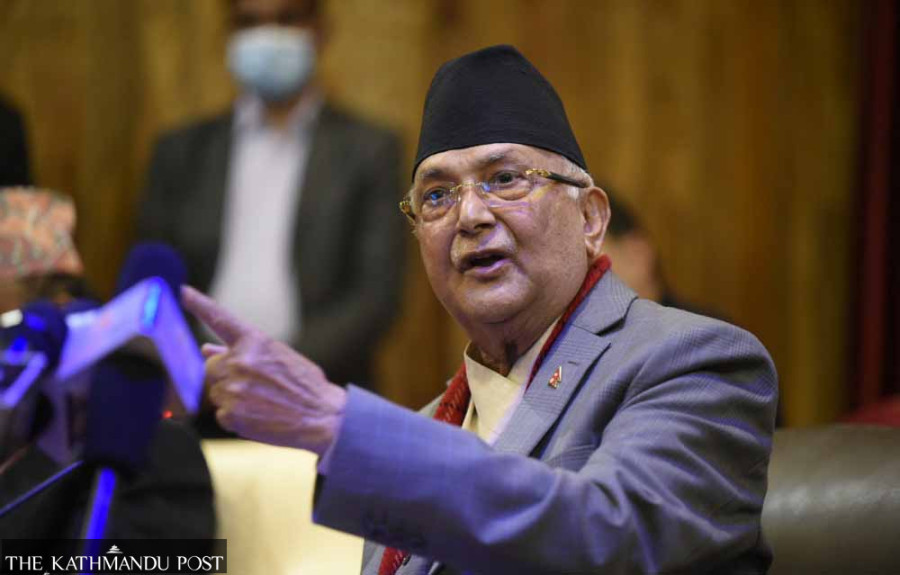Editorial
Old fox wins again
Oli’s new assertion of power in the UML has raised some troubling questions.
Former President Bidya Devi Bhandari’s aborted re-entry into the CPN-UML has again highlighted the difficulty of changing the party’s leadership, the power-obsessed nature of its top leaders and the helplessness of party members and committees before the manoeuvering of powerful leaders. The UML’s central committee meeting that concluded on Tuesday effectively stopped former President Bidya Devi Bhandari from rejoining the party. As no UML leader posed a serious threat to Oli’s leadership, he took Bhandari’s planned comeback as a threat and applied all methods to stop her.
In deciding not to approve her membership renewal, the party’s central committee has given a few grounds. It has said a wrong precedent would be set by allowing someone who has already served as the head of state, supreme commander of the national army, a figure of national unity and someone entrusted with the responsibility of protecting the constitution, back into the party. These arguments are valid. If the idea of returning to active politics is at the back of the mind of the head of state, will that person do justice to the country’s highest position? But it is also clear that the Oli faction used these arguments to serve its own interest.
The party decided to remove the 70-year age limit and two-term cap from its statute. Again, these provisions were removed mainly to pave the way for 74-year-old Oli, who is leading the party for a second term, to stay in power for longer. This is the most troubling aspect of UML’s recent decisions. If the political party leading the country can act in such brazen self-interest, can we trust it to formulate the government’s policies and programmes and run the country fair and square?
The suffocation in the UML due to Oli’s arbitrary rule has been evident for some time. But even an intra-party struggle led by former prime ministers Madhav Kumar Nepal and Jhalanath Khanal couldn’t end Oli’s autocracy. They gave up and quit. The UML still has no dearth of second-rung leaders with decades of experience in active politics and running key ministries. It is ironic that they had to seek Bhandari’s help to break Oli’s stranglehold.
But this is the problem in almost all political parties. Nepali Congress President Sher Bahadur Deuba has occupied the country’s top executive post at different times over three decades. CPN (Maoist Centre) Chairman Pushpa Kamal Dahal has continuously been party chief for over 35 years. Madhav Nepal and some senior party leaders quit the UML and formed CPN (Unified Socialist). But the same leaders recently issued a circular asking their cadres not to speak against the party chief, who is implicated in a corruption case.
Thus, be it Oli, Bhandari, Deuba, Dahal, or Nepal, the obsession with political power is common to them all. Only a strong system can address it. For instance, five-time prime minister Deuba has already secured his sixth-term by forging an agreement with the UML. But he is retiring as party chair as the Congress manifesto doesn’t allow anyone to hold the party presidency for more than two terms—and rightly so. Prolonged hold on power invariably corrupts. Oli’s new assertion of power in the UML has raised some troubling questions, and the new amendments to party charter has made it a more regressive force.




 10.12°C Kathmandu
10.12°C Kathmandu













